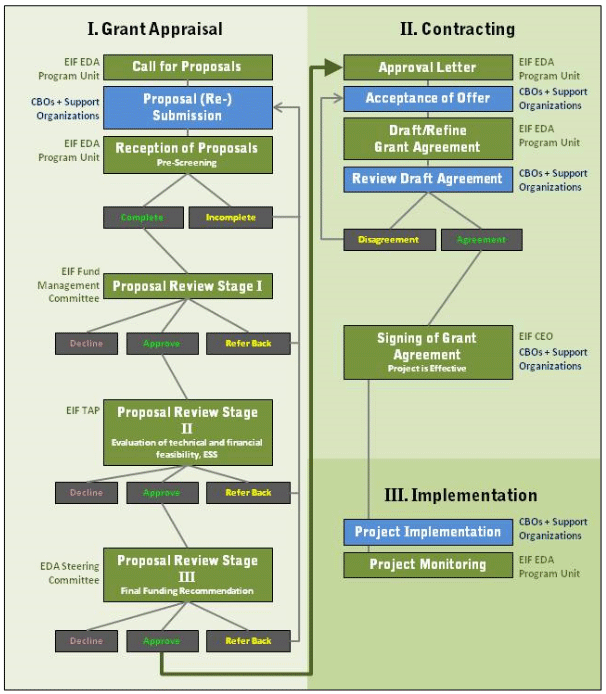Empower to Adapt: Creating Climate-Change Resilient Livelihoods through Community-Based Natural Resource Management (CBNRM) in Namibia: FP024
Project Outline
This project seeks to empower rural communities of the Namibian CBNRM Network to respond to climate change in terms of awareness, adaptive capacity, and low-carbon development through strengthening the institutional foundation for effective and sustainable community-led local climate action in the CBNRM network, and by providing direct access to climate finance for increased resilience of CBNRM livelihoods and low carbon rural development.
| Country(ies) | Namibia |
|---|---|
| National Designated Authority (NDA) | Ministry of Environment and Tourism: MET |
| Accredited Entity (AE) | Environment Investment Fund of Namibia: EIF (Direct/National) |
| Executing Entity (EE) | Communal Conservancies, Community Forests, MET, and support organizations such as the Namibian Association of Community-Based Natural Resource Management (CBNRM) Support Organizations (NACSO ) (Public) |
| Date of Final FP Submission | August 26, 2016 |
| Estimated Project Duration | 2017-2022 |
| Target Sector | Natural Resource Management |
| GCF Financing | 10 million USD (Grant) Micro |
| Co-financing | N/A |
Project Description
< Major Project Components>
- Grant facility for resilient CBNRM livelihoods in Namibia.
- Capacity building and community support.

Ref: FP024 Empower to Adapt: Creating Climate-Change Resilient Livelihoods through Community-Based Natural Resource Management (CBNRM) in Namibia
Potential Indicators of Key Impacts
Expected total number of direct and indirect beneficiaries, disaggregated by gender (reduced vulnerability or increased resilience):
- Direct beneficiaries: 15,500 persons (50% of total beneficiaries will be female)
- Indirect beneficiaries: 61,000 persons
- 1% of the population in CBNRM areas
- Other relevant indicators:
Strengthened institutional and regulatory systems for climate-responsive planning and development:- 30 additional CBNRM entities will demonstrate compliance with MET's SOPs as a result of the project.
- Increased generation and use of climate information in decision-making:
- 30 community-based organizations (CBOs) will have adopted the local climate monitoring system developed and introduced by the project.
- Strengthened adaptive capacity and reduced exposure to climate risks:
- 2,400 rural households expected to undertake climate resilient agriculture actions.
- 90 settlements expected to have increased climate change resilience.
- 450 households with improved water security, improved health and sanitation, and at the same time increased resilience to slow onset/sudden climate-induced disasters.
- 186 sustainable climate-resilient jobs (50% female, 50% male) expected to be generated.
- Strengthened awareness of climate threats and risk-reduction processes:
- 510 people directly trained in awareness of climate threats and related appropriate responses.
- Awareness of climate change issues of 80 CBNRM CBOs will be enhanced.

